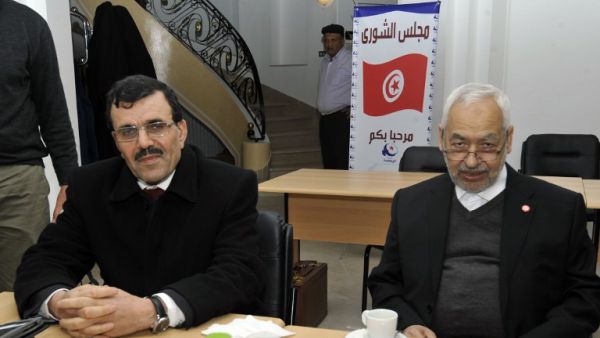Tunisian President Moncef Marzouki on Friday asked Interior Minister Ali Larayedh, a hardliner from the main Islamist Ennahda party, to form a government within two weeks, his spokesman said.
Marzouki's spokesman told a news conference Ennahda leader Rached Ghannouchi had formally nominated Larayedh to succeed outgoing Prime Minister Hamadi Jebali, who resigned on Tuesday.
Ennahda is the biggest party in the National Constituent Assembly with 89 of its 217 seats. Marzouki's secular Congress for the Republic party, the second largest with 29 seats, has already said it will join a new Ennahda-led coalition.
But Ennahda's choice is likely to raise hackles among liberal Tunisians, some of whom accuse Larayedh's Interior Ministry of failing to curb violence by Islamists against advocates of secularism, including journalists and artists.
However, they give him credit for taking firm action against Islamist militants with alleged links to al Qaeda.
Larayedh, who was imprisoned and tortured under the regime of Zine El Abidine Ben Ali, has been interior minister since the dictator was ousted in 2011.
A moderate member of the party, he is seen as a man of dialogue.
On Thursday, Ennahda said it will pick a hardliner to replace moderate outgoing Jebali after he declined to head the next government.
Jebali, who is secretary-general of Ennahda, resigned on Tuesday after his plan for an a political technocrat cabinet to prepare for elections collapsed, largely because of opposition from within his own party and its leader, Rached Ghannouchi.
“Jebali declined to accept nomination (for next prime minister),” Ennahda said. “A new candidate will be presented to the president of the republic this week.”
The assassination of opposition leader Chokri Belaid on Feb.6 plunged Tunisia into its worst political crisis in the two years since a revolt toppled President Zine al-Abidine Ben Ali and inspired Arabs elsewhere to rebel against autocratic rulers.
The secular leftist's killing sent protesters flooding into the streets, exposing the deep rifts between Tunisia's empowered Islamists and their liberal and secular-minded opponents.
Jebali had proposed forming a technocrat cabinet to replace his Ennahda-led coalition, which included two secular parties to spare the North African nation's nascent democracy and its struggling tourism-dependent economy from further strife.
But Ghannouchi blocked the moderate premier's plan and a senior Ennahda official told Reuters the next prime minister would come from the party's hardline wing, which opposes any role for politicians linked with the Ben Ali era.

Interior Minister Ali Larayedh and Ennahda ruling party's leader Rached Ghannouchi pose before a meeting at the party's headquarters on Friday. (AFP PHOTO / FETHI BELAID)








